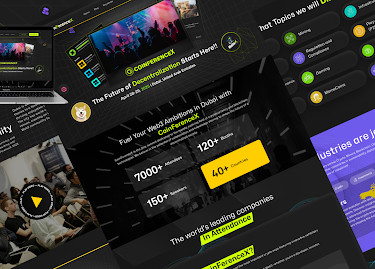All about plutus programming language you need to know

Plutus is a programming language specifically designed for writing smart contracts on the blockchain platform, specifically for the Plutus Platform. It is based on Haskell and allows for the formal verification of contract code, which can increase the security and reliability of smart contracts. Plutus is also used for the development of decentralized apps (dApps) on the Cardano blockchain.
Use cases of Plutus
Plutus is primarily used for the development of smart contracts and decentralized applications (dApps) on the Cardano blockchain. Some potential use cases for Plutus-based smart contracts include:
- Supply chain management: Plutus smart contracts can be used to create an immutable record of transactions and movements of goods, allowing for greater transparency and traceability in supply chains.
- Finance: Plutus-based smart contracts can be used for financial transactions such as lending, borrowing, and trading of assets.
- Identity verification: Plutus smart contracts can be used to create a secure and decentralized system for storing and verifying identities.
Additionally, because Plutus allows for formal verification of contract code, it can be used in applications where a high level of security and reliability is required, such as in the financial industry.
It’s also used to create a decentralized funding platform for open-source projects, where funds are held in a smart contract and released to developers only when certain milestones are reached.
Example of Plutus
An example of a simple Plutus smart contract could be a voting contract. The contract would allow users to vote on a particular topic by sending a transaction to the contract with their vote. The contract would keep track of the total number of votes for each option and the total number of voters.
Here is an example of the Plutus code for a voting contract:
data Vote = A | B
data State = State {
votesForA : Integer,
votesForB : Integer,
totalVoters : Integer
}
contract Voting (state : State) =
public let vote : Vote -> Integer -> Integer -> Effect State
vote choice weight deposit =
case choice of
A -> put (state { votesForA = votesForA state + weight })
B -> put (state { votesForB = votesForB state + weight })
public let getTally : Integer -> (Integer, Integer)
getTally weight = (votesForA state * weight, votesForB state * weight)
This contract is defined with two data types, Vote and State. Vote has two options A and B and State keeps track of the number of votes for each option and total number of voters. The contract has two public function vote and getTally, vote function allows users to cast their vote by sending a transaction to the contract with their vote and weight and deposit which are added to the state. The getTally function returns the total number of votes for each option multiplied by the weight.
This is a simple example, in the real world, contracts would be more complex and would include additional functionality such as access control, error handling, and more.
Founder of Plutus
Plutus is developed by IOHK (Input Output Hong Kong), a blockchain research and development company founded by Charles Hoskinson and Jeremy Wood in 2015.
Charles Hoskinson is also the co-founder of Ethereum, and later he founded IOHK to focus on blockchain research and development. He is also the creator of Cardano, which is a blockchain platform that uses a proof-of-stake consensus algorithm and Plutus is the smart contract programming language for Cardano.
Jeremy Wood is the co-founder of IOHK and also a co-founder of Ethereum. He has been working in the blockchain field for many years and has a deep understanding of the technology and its potential uses.
Together, Charles Hoskinson and Jeremy Wood founded IOHK and launched the Plutus Platform and Plutus smart contract programming language.
Future of Plutus
The future of Plutus is closely tied to the future of the Cardano blockchain, on which it is used for smart contract development. Cardano is a relatively new blockchain platform, and its development is ongoing, with new features and upgrades being added regularly.
IOHK, the company behind Plutus, has a long-term vision for the platform, which includes the development of a wide range of use cases and applications, including financial services, supply chain management, and digital identity.
As the demand for decentralized applications and smart contract-based solutions continues to grow, the adoption of Plutus and the Cardano blockchain is likely to increase. With its focus on formal verification and a strong emphasis on security and reliability, Plutus is well-positioned to play a key role in the development of decentralized applications in various industries.
In addition, IOHK is also planning to further enhance the Plutus language to make it more developer-friendly and more efficient to use, and also to include more advanced features like formal verification, privacy, and scalability.
Overall, the future of Plutus looks promising as it has a strong team behind it and a solid foundation of technology, and as the blockchain technology matures, it’s expected that Plutus will also be adopted more widely in the industry.
Also read : Solidity programming language



